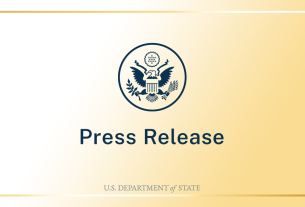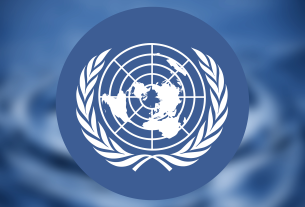|
Getting your Trinity Audio player ready...
|
The Covid-19 pandemic has challenged health systems and exposed their weaknesses. The progress made in recent years has sometimes been undone. In the area of maternal and child health, recent data published by the World Health Organization (WHO) point to significant shortcomings, particularly in West Africa. Adam Ahmat, head of the department of human resources for health at WHO’s African office, discusses the challenges governments face in ensuring proper access to maternal and child health care.
What is the situation of maternal and child health in West Africa?
As in other parts of the continent, progress is being made, but it’s slow. And among the causes, the shortage of qualified health workers is a major factor. When considering all workers, excluding health administrators and support staff, the average density of health workers in Africa was 29 per 10,000 inhabitants in 2018. The target set by the Sustainable Development Goals (SDGs) for 2030 is 134. This is a long way off. It’s difficult to comment on the proportion of staff exclusively dedicated to reproductive health as such. But if we consider, based on WHO recommendations, that there should be 44.5 doctors, nurses and midwives per 10,000 inhabitants, significant increases in the number of health personnel are needed.
Which jobs are the most affected by this shortage?
Human resource shortages are linked to country-specific models of care that focus on primary health care for vulnerable groups. Most often, midwives – professionals, assistants, and birth attendants – are responsible for monitoring pregnancy and delivering babies. But normal deliveries can quickly become high-risk, and those health workers are often at a loss when complications arise. It’s at this point that specialists must intervene: obstetricians, gynecologists, pediatricians and pediatric surgeons. But these are very rare, especially in rural areas.
“When we send health professionals to specialize in France, some don’t return home.”
Is this situation the result of a training problem or a lack of means to recruit?
The reasons for the shortages are many and varied. Many countries in the sub-region have insufficient capacity to train more health personnel in all the required disciplines. There’s a lack of qualified teachers, infrastructure, equipment and training sites. There’s also the issue of the mismatch between training and the jobs in demand. The consequence is that countries don’t always employ their graduates. Another important aspect to consider is the migration of experienced and qualified health professionals to developed countries. For example, when they’re sent to specialize in France, once they graduate, some don’t return home. In Niger, for example, there’s a crucial need.
For various reasons, a portion of the West African population is mobile. How do you ensure their access to health services?
These populations are among the vulnerable groups. They suffer from poor access to basic public services, including health and education. In Chad, for example, many populations are nomadic. They’re always moving around to find pasture for their livestock. This is also the case in Niger. The deterioration of the security situation caused by terrorism aggravates the difficulties of access to health services. In a context of shortages of health personnel, their situation is all the more serious. One way to improve their circumstances is to create mobile units by dispatching health personnel from hospitals.
Why do you advocate decentralized recruitment of health care personnel?
In several countries, governments have made massive recruitment efforts of health workers. This is a good thing. But the main challenge is to deploy them to remote or hard-to-reach areas, where the need is substantial. Decentralized recruitment with predefined quotas can address those challenges. This option also requires a strategy for retaining health workers in those settings.
Healthcare workers often complain about their working conditions. This can lead to patient abuse, as illustrated by the case of obstetric violence in Senegal. What would you recommend to improve their situation so that they provide respectful care to beneficiaries?
We are interested in your experience using the site.
Working conditions vary from one country to another. To start with, healthcare workers are underpaid, understaffed, and poorly equipped with medical supplies. Their daily workload puts them under high pressure. This situation can cause stress and even burnout. A recent study conducted in several countries showed that a midwife is often forced to fulfill the tasks of three people. This poses a real problem for the organization of work. I find it unfair that a midwife transferred to a health center has to look after 5,000 to 10,000 people from several villages. This makes them less welcoming. When dealing with pregnant girls, it can happen that they express themselves in such a rude manner that it dissuades those future mothers from attending the health centers for their pregnancy follow-up.
This article was produced in partnership with the French Muskoka Fund.


